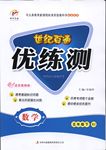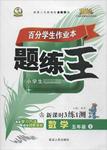题目内容
【题目】 The Ayaidah, a Bedouin tribe in north-eastern Egypt, is the last to practice the Bisha’h to determine whether a suspect (嫌疑犯) in a crime is innocent or guilty. They have to lick (舔) a red-hot spoon in the presence of officials. They are guilty, 【1】.
Believed to date back to ancient Mesopotamia, Bisha’h was used by most Bedouin tribes (部落) throughout the centuries, but all except the Ayaidah eventually abandoned it. 【2】. Considered by many of the world’s oldest rude system, Bisha’h was mostly used in situations where a crime was committed, but there were no witnesses. Suspects had to lick a heated spoon to prove their innocence.
The principle behind Bisha’h is that a lying person is nervous and has a dry mouth. 【3】. If they are innocent, they are relaxed, so the saliva (唾液) on the tongue will protect it against the red-hot metal.
【4】. This way not only causes physical harm to suspects, but also often leads to their mental damage.
Today, the Bisha’h is used as a last way, 【5】. It’s also used as a way of scaring suspects into admitting their crimes. For example, if the suspects admit what they had done, there is no need to move on with the Bisha’h. That is considered another weakness of this lie detection system, as some people will accept the blame if it means not having to lick hot metal to prove they are innocent.
A. if their tongue is hurt seriously
B. when they have used these methods
C. So their tongues will be burned by the hot metal
D. when there is no other proof or witnesses available
E. All the countries like the way of punishment
F. This way of punishment is banned in countries like Jordan and Saudi Arabia
G. However, those who are against the punishment think that it is not always the case
【答案】
【1】A
【2】F
【3】C
【4】G
【5】D
【解析】
这是一篇说明文。文章主要介绍了埃及东北部的贝都因部落是最后一个使用比莎仪式来判定犯罪嫌疑人是否有罪的部落。
【1】根据前文“The Ayaidah, a Bedouin tribe in north-eastern Egypt, is the last to practice the Bisha’h to determine whether a suspect (嫌疑犯) in a crime is innocent or guilty.( 埃及东北部的贝都因部落Ayaidah是最后一个使用比莎仪来判定犯罪嫌疑人是无辜还是有罪的部落。)可知,本段在介绍这种判定是否犯罪的仪式,那么设空句应对这种仪式是如何判断的作出解释,选项A“if their tongue is hurt seriously(如果他们的舌头受伤严重)”结合空前内容为判定方法。故选A项。
【2】根据前文“all except the Ayaidah eventually abandoned it.( 除了Ayaidah,所有部落最终都放弃了这一仪式)”,可知,设空句应会提及有哪些国家或部落放弃这一仪式作为举例。选项F “This way of punishment is banned in countries like Jordan and Saudi Arabia.( 这种惩罚方式在约旦和沙特阿拉伯是禁止的)”符合语境分析。故选F项。
【3】根据后文“If they are innocent, they are relaxed, so the saliva on the tongue will protect it against the red-hot metal.”可知这里在对比说明无辜的人和撒谎的人在这个仪式中的不同表现和后果,无辜的人的唾液会保护舌头免受伤害,撒谎的人就会受伤(So their tongues will be burned by the hot metal)。故选C项。
【4】根据后文“This way not only causes physical harm to suspects, but also often leads to their mental damage.( 这种方式不仅对犯罪嫌疑人造成身体上的伤害,而且往往导致其精神上的伤害。)”讲述了其危害,可知,设空句应是在表达“反对这项仪式”。选项G“However, those who are against the punishment think that it is not always the case(然而,那些反对惩罚的人认为情况并不总是如此)”,句中既有“however”承接上文表示转折对比,又提出了“反对”。故选G项。
【5】根据前文“Today, the Bisha’ h is used as a last way(今天,比沙被用作最后一种方式)”可知,它作为最后一种“不得不”的方式存在应该是在没有证据或证人的情况下使用的。选项D“ when there is no other proof or witnesses available(没有其他证据或者证人的)”为使用条件,符合语境分析。故选D项。

 世纪百通主体课堂小学课时同步达标系列答案
世纪百通主体课堂小学课时同步达标系列答案 世纪百通优练测系列答案
世纪百通优练测系列答案 百分学生作业本题练王系列答案
百分学生作业本题练王系列答案